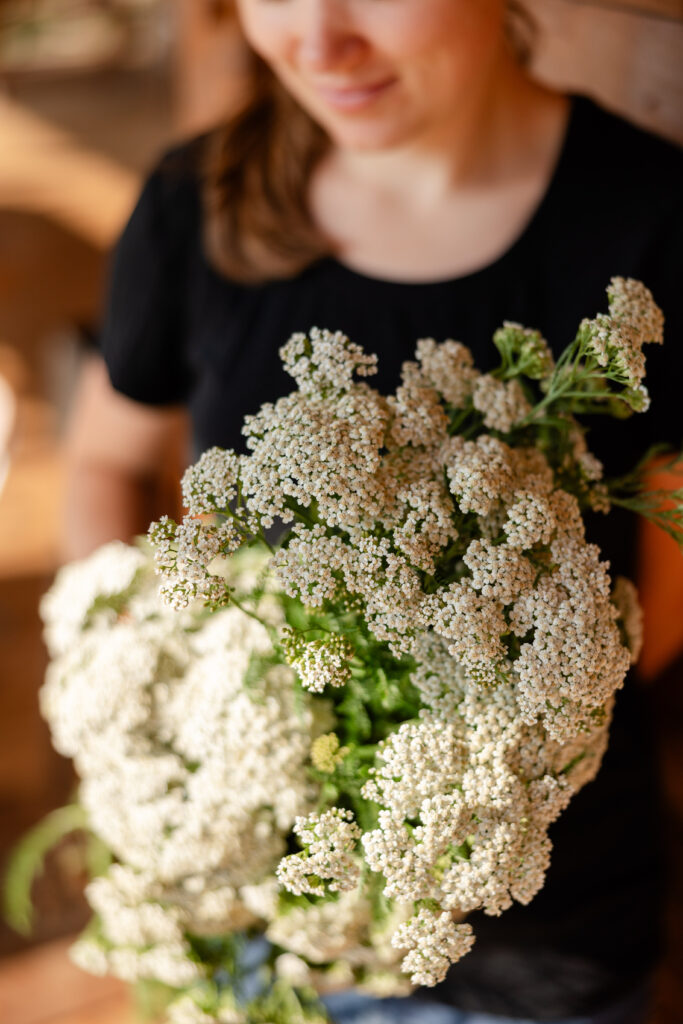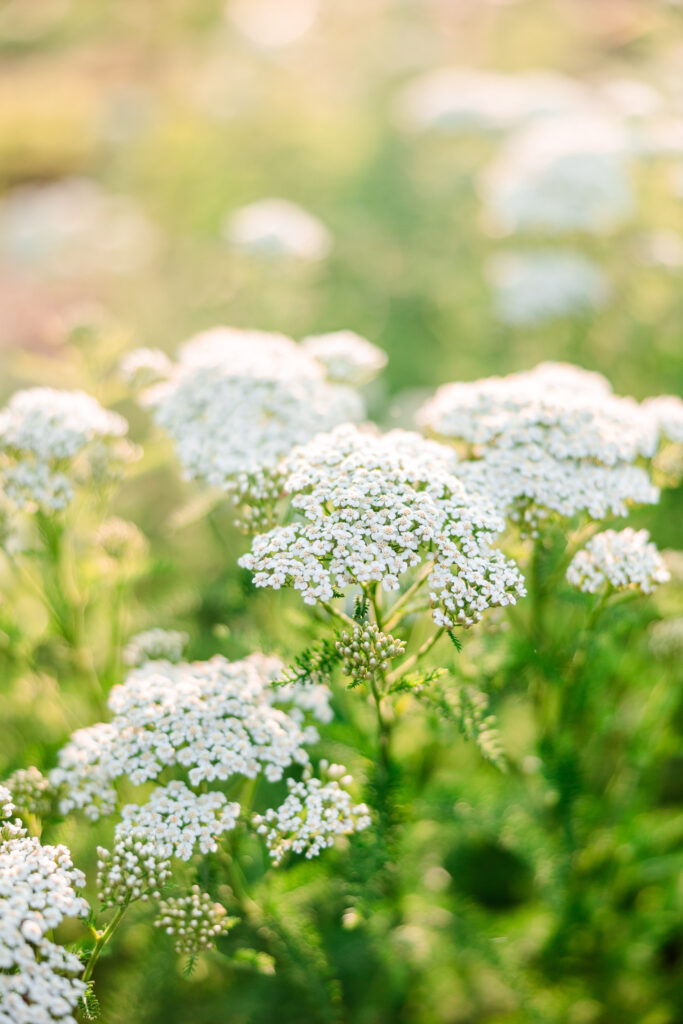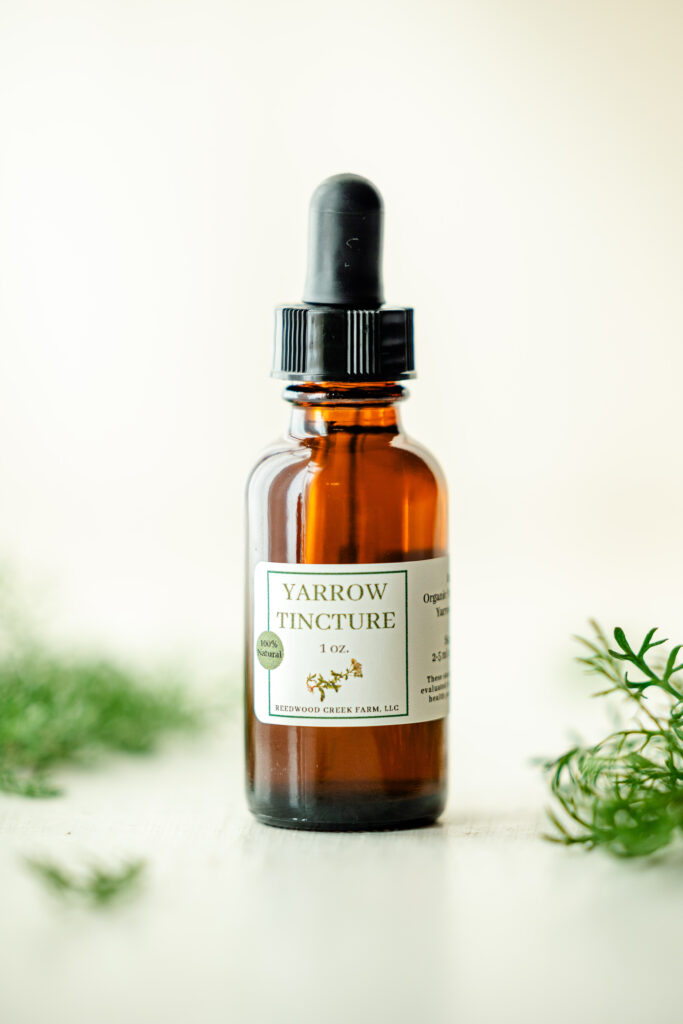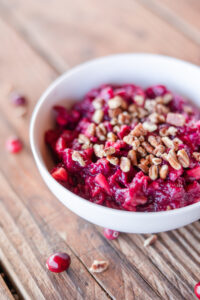Yarrow (achillia millefolium) is one of those herbs that you will never want to be without. When it comes to the variety and number of benefits for this wonderful herb, it’s hard to even know where to start.
Yarrow’s Actions
Yarrow’s actions are far reaching and include anti-inflammatory, antimicrobial, antispasmodic, astringent, choleretic, diaphoretic, diuretic, styptic and vulnerary properties. These are a mouthful of words to say but basically mean that yarrow is extremely versatile! It reduces inflammation, kills bacteria, decreases spasms, tones tissues in the body, helps with bile flow from the liver, rids the body of waste, stops bleeding, and aids wound healing.

Yarrow’s Many Uses
Yarrow has been used to stop both external and internal bleeding, disinfect and seal wounds, and is an important herb used for Irritable Bowel Disease (IBD). It can ease cramping and pain and help slow digestive motility. When properly dosed, it has a significant effect on the stimulation and growth of new skin cells.
Yarrow’s astringent properties can be a support to those with sinus infections and allergies as well as wet coughs. It can help dry up excess mucous out of the respiratory tract and decrease swelling in the nose and throat. Its astringent properties also aid the urinary tract and kidneys by toning tissues and helping with water retention. Yarrow is also useful in cases of kidney stones. Perhaps the best question to ask is, what can yarrow NOT do?
From Farm to Tincture
Our yarrow tincture is made from yarrow aerial parts harvested from our herb farm. Started from a small cutting given to us by a kind neighbor, our original yarrow plant took off and continues to provide plant medicine year by year. We harvest its feathery leaves and clusters of white flowers for their host of medicinal benefits. After drying the leaves and flowers, they are added to our herbal apothecary and used to make tinctures and teas.


Yarrow Tea for Flu and Fevers
We like to include yarrow leaf and flower in our immune boosting tea recipe. It warms up the body, helping to fight off sickness and make fevers more productive and efficient. Fevers, although typically viewed in a negative light, are often the way our bodies fight off sickness. They are our bodies’ defense response to invading viruses or illness. In reality, fevers are actually a good thing!
Yarrow is a diaphoretic herb, which means it helps to make fevers more productive. It helps to open pores and encourage perspiration, aiding the body in sweating out toxins. When a fever is encouraged to do its job, it will break sooner and bring quicker relief.
One of the best ways to take yarrow, at the onset of a cold or when using for its diaphoretic properties, is in the form of a hot herbal infusion (or herbal tea). Drinking a hot beverage can in itself warm up the body, but a hot yarrow infusion will result in a diaphoretic-flu-fighting blend!
Yarrow has a strong, distinct taste and smell. Add pleasant tasting herbs like peppermint or lemon balm to yarrow infusions for a more enjoyable blend.
Identification and Characteristics of Yarrow
Yarrow is a prolific perennial, so once it’s established, you won’t have to worry about replanting. When adding it to your garden or yard, find a spot where it can grow big and spread rapidly. Yarrow grows in a variety of soil conditions and can be found in the wild, along roadsides or in fields, or can be cultivated in your garden.
Be sure to identify yarrow correctly as it looks similar to some toxic plants like Poison Hemlock. Yarrow’s leaves are feathery and grow on the sides of tall stems. The white clusters of flowers bloom in mid-late summer and have the same medicinal benefits as the leaves. It is best to harvest yarrow when it is in full bloom. Watch as Lauren harvests yarrow in this video.
How To Consume and Use Yarrow
As we have already discussed, yarrow can be taken internally as an infusion or tincture. The tincture can be taken by itself or mixed with a little water, juice, or tea to mask the strong taste. Dosage will vary depending on age and need.
Diluted yarrow tincture or tea can also be used as a disinfectant. It can be sprayed onto cuts, wounds and even surfaces to kill bacteria. Powdered yarrow helps to stop external bleeding and aid wound healing when applied to the affected area.
A Word of Caution
As with any herb, consider the benefits and risks of taking yarrow before consuming it. It should not be taken during pregnancy or lactation. If you have a history of liver issues, do not consume for longer than two weeks. Yarrow should be taken only when needed and for acute conditions.
~Hannah and Lauren






